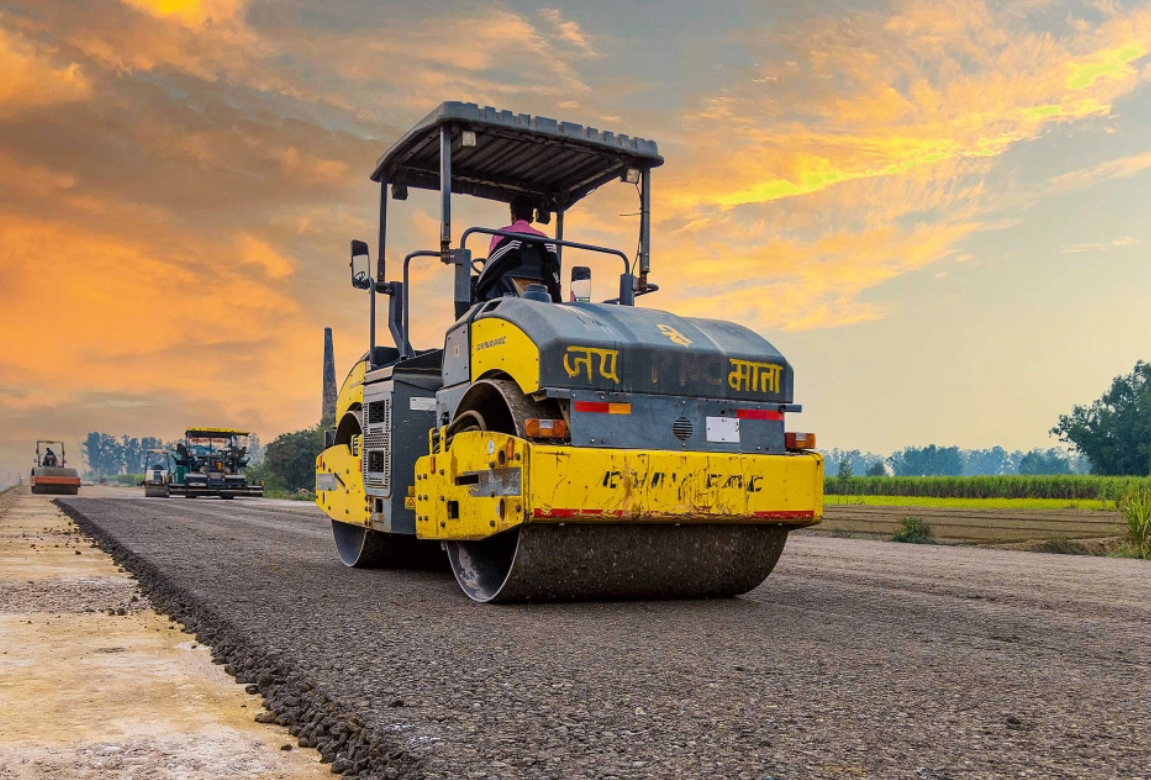CSIR-CRRI’s REJUPAVE Technology Deployed in Arunachal Pradesh
India’s premier road construction agency, Border Roads Organization (BRO) has utilized an indigenous road construction technology called “REJUPAVE” developed by CSIR-Central Road Research Institute (CSIR-CRRI), part of the Ministry of Science and Technology. REJUPAVE allows the construction of high altitude bituminous roads under low and sub-zero temperatures.
This innovative technology was recently implemented by BRO to construct parts of the world’s highest Sela Road Tunnel and the LGG-Damteng-Yangste (LDY) road near the China border in Arunachal Pradesh.
Issues In Construction of High-Altitude Bituminous Roads
Construction and maintenance of high-altitude bituminous roads under the low and sub-zero temperatures in Arunachal Pradesh has always been a challenge for Border Roads Organization. Most bituminous road construction grinds to a halt or faces delays during the winter months. The production of hot bituminous mix for paving requires heating to 160-170°C in the hot mix plant. Additionally, the mix must remain sufficiently hot during transport to the work site for proper compaction and durability. But the increased travel time down hilly roads often causes the mix to cool too rapidly before paving can begin.
How REJUPAVE Overcomes Winter Road Construction Challenges?
REJUPAVE utilizes several innovations to overcome the difficulties posed by frigid conditions.
First, it increases the heat retention properties of bituminous mix by coating the aggregate mix with special hydrocarbon-based additives. This allows the mix to stay workably hot even during extended transportation times from the hot mix plant to distant work sites.
Second, it allows a unique construction sequence called Pre-Fab paving where a base layer is paved and allowed to completely cool and set prior to overlaying with the top hot bituminous layer.
Finally, it utilizes special dominant stone skeleton gradations which have better resistance to deformation under rolling/compaction at relatively cold temperatures, allowing for easier placement and compaction.
Successful Deployments & Benefits
REJUPAVE’s successful use by BRO in Arunachal Pradesh helped accelerate critical strategic road projects that get hampered during 6-month long winters. It also delivered superior long-term road performance by overcoming challenges caused by steep gradients, adverse weather, and sub-zero temperatures.
Wider adoption of this cost-effective indigenous technology developed by Indian scientists has the potential to transform construction schedules for strategic infrastructure along northern borders. This can bolster all-weather connectivity for defense forces and border populations while reducing dependence on foreign solutions.
Month: Current Affairs - January, 2024
Category: Economy & Banking Current Affairs - 2024


